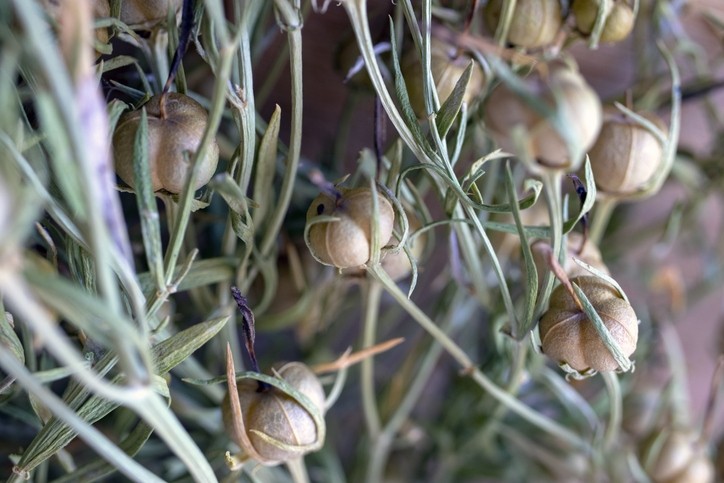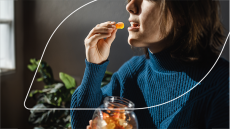Nitre bush extract offers natural solution for obesity: Study

The double-blind, randomized, placebo-controlled trial published in the journal Nutrients assessed the effect of 12-week consumption (2,000 mg/day) of an extract of the nitre bush shrub (Nitraria retusa), or placebo in 68 overweight and obese females.
“NRE consumption may reduce body weight, waist circumference (WC) and body mass index (BMI), mainly explained by body fat loss balanced with an increase in body water as well as muscle mass,” the authors from Tunisia and Japan wrote.
Evolving obesity solutions
According to the World Obesity Atlas 2023, more than half of the global population or over 4 billion people may be affected by overweight and obesity by 2035. While traditional obesity treatments in severe cases involve medical or surgical interventions, drugs may have adverse effects, and research has begun to explore alternative methods such as using medicinal plants.
Polyphenols in plants, like flavonoids and phenolic acids, have shown anti-obesity properties, modulating various factors in the body. Specifically, NRE has demonstrated anticancer, antioxidant, antiviral and antimicrobial properties, and previous study results indicate its potential anti-obesity effects by reducing fat accumulation and regulating lipid metabolism in cells.
One recent clinical trial showed the safety and tolerability of NRE tea in both healthy and overweight/obese individuals for 10 days, demonstrating its hypolipidemic effect through the regulation of high-density lipoprotein (HDL) and triglyceride (TG) after short daily administration intake in overweight and obese participants with a dependent dose effect. However, existing information available on Nitraria retusa has remained limited.
“Clinical studies conducted according to certain methodological criteria are the only way to prove with certainty the therapeutic efficacy of a treatment,” Dr. Aicha Laouani, lead researcher on the study, told NutraIngredients.
Nitraria retusa and obesity
Participants between the ages of 20 and 75 years with a BMI greater than 25 kg/m2 were recruited to consume either a placebo or NRE powder, which was prepared by dissolving 2,000 mg of crushed dried leaves of Nitraria retusa in 100 ml of boiling water for 15 minutes.
Body weight, BMI, body composition and anthropometric parameters were assessed, and lipid profile and safety evaluation parameters were evaluated at baseline and after 12 weeks.
Compared to the placebo group, the NRE group exhibited a mean weight loss difference of 2.27 kg at the end of the trial period. The most significant weight reduction, amounting to 3.34 kg ± 0.93, was observed in younger participants with a BMI greater than 30. Similarly, BMI and BF percentage significantly decreased in the NRE group compared to the placebo group.
The percentage of BW, as well as the ratio of LBM/BF, showed a significant increase after the NRE intervention compared to the placebo.
After age adjustment, all variables, except LBM/BF, retained statistical significance, and all anthropometric parameters were significantly reduced only in the NRE group.
A significant reduction in Triglyceride (TG) levels in the NRE group was also revealed, in contrast to the placebo group.
“The reduction in triglyceride levels in the NRE group compared to the placebo group suggests that NRE may have a beneficial effect on lipid profiles in overweight/obese subjects,” Dr. Laouani explained.
“Our results also suggest that in addition to its beneficial effects against obesity, daily intake showed lipid-lowering effects compared to the placebo group, implying that weight loss, changes in body composition, anthropometric parameters and lipid profile could be attributed to the bioactive components of NRE.”
NRE achieves its effects through the diversity of its components, unlike a traditional synthetic drug that relies on a specific action tied to an isolated active ingredient targeting a particular organ, she concluded.
However, the study acknowledged that the molecular mechanism of action of the active principles of NRE remains unknown and noted plans for future research to identify and quantify the different phenolic compounds of Nitraria retusa aqueous extract.
Journal: Nutrients
“Antiobesity and Hypolipidemic Potential of Nitraria retusa Extract in Overweight/Obese Women: A Randomized, Double-Blind, Placebo-Controlled Pilot Study.”
doi: 10.3390/nu16020317
Authors: Aicha Laouani et al.












